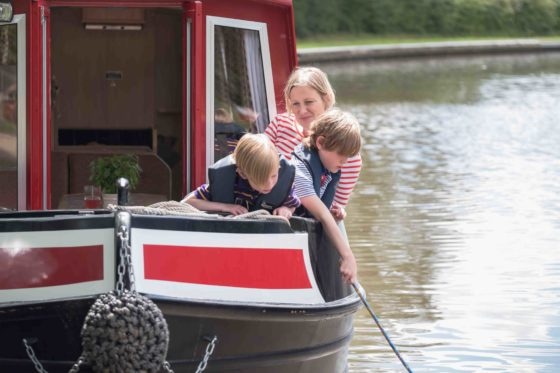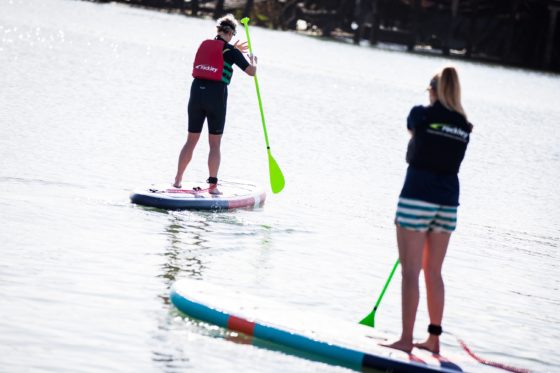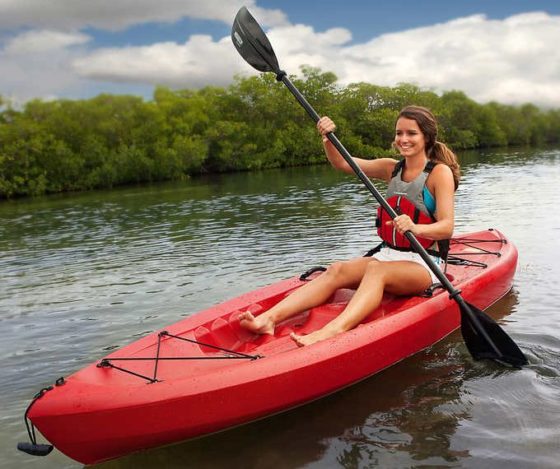
Research reveals time on the water can improve wellbeing

With concerns about the negative impact of the coronavirus pandemic on mental and physical health, new research commissioned by British Marine and the Canal & River Trust reveals that spending time on coastal or inland waterways can be an effective way to improve wellbeing.
Using the Office for National Statistics’ four measures of wellbeing, the research provides a preliminary investigation of the wider social value associated with boating, and is the first of its type to explore the effect being able to get out onto the water has on people’s happiness or quality of life.
Comparing moderate with frequent participation, the research shows that regularly spending time out on the water could be even more beneficial than accepted mindfulness activities such as practising yoga or pilates* and even generates an increase in life satisfaction of about half that seen from gaining employment. The research shows that the more time spent out on the water, the bigger the benefit: frequent participation (ranging from once a month to more than once a week) in boating and watersports compared to moderate participation is associated with anxiety levels 15 per cent lower and a life satisfaction value of 7.3 on a scale of 0-10 (6 per cent higher).
Ahead of another summer staycation and in light of the research findings, British Marine has launched a new ‘on the water’ website giving details of locations across the UK where people can get afloat. The website is designed to connect people with boating and watersports providers offering paddleboarding, motor cruising, surfing, kayaking, narrowboat cruising, sailing and more on either inland canals, rivers, lakes and reservoirs, or along the coast. The Royal Yachting Association (RYA) is a supporter of OnTheWater.co.uk, and RYA Recognised Training Centres can also be found on the website.
“Whilst ‘blue space’ has long been recognised to contribute to overall wellbeing, offering both physical and mental health benefits, I am delighted that our new research not only confirms this but places frequent boating and watersports alongside activities such as yoga that are known for their restorative and mindful benefits,” says Lesley Robinson, CEO of British Marine.
“The many lifestyle benefits are all the more reason to take to the water this summer, and we want to share this news far and wide to encourage people to try something that is not only fun but good for fitness and health,” continues Robinson. “The boost received each time we push away from the shore, coupled with fresh air and vitamin D, will be particularly welcome as Covid-19 restrictions ease and we move out of the pandemic. The staycation season has begun and OnTheWater.co.uk is geared towards inspiring people to get afloat through finding the right experience in a location of their choosing.”

“This study provides an important baseline in the wellbeing research around boating activities,” adds Richard Parry, chief executive of the Canal & River Trust. “It is the latest piece of research that demonstrates the substantial value of the nation’s inland waterways to people everywhere; from providing vital green and blue spaces in our towns and cities, to supporting biodiversity and helping mitigate climate change impacts.
“It is particularly encouraging to see the positive benefits of paddle sports; with our waterways on the doorstep of nearly nine million people, this can often be the most accessible way to get out onto the water to experience the unique wellbeing benefits of spending time afloat.”
Users of the website are invited and encouraged to share their experiences afloat on social media, and in turn inspire others to do the same, by using the hashtag #OnTheWater.
* Being a frequent boater or watersports participant is associated with an increase in life satisfaction of 0.44 in comparison to a moderate boater. As a comparison, practising yoga or Pilates is associated with a wellbeing contribution of 0.17.


